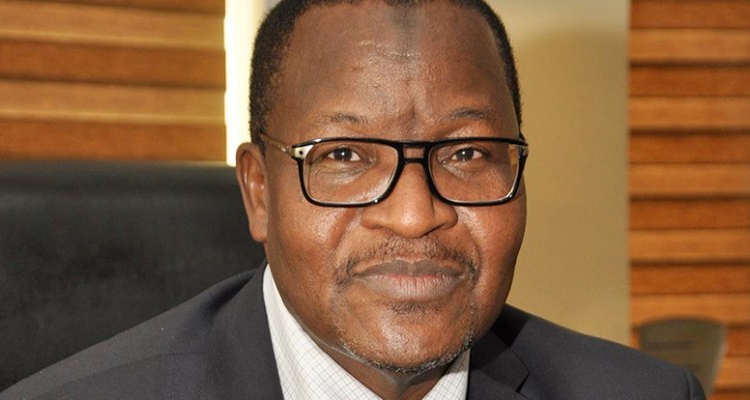Exactly 22 years ago, the Nigerian Communications Commission (NCC), changed the course of history in the country by conducting one of the world’s freest auctions for the Digital Mobile Licence (DML) that led to the deployment of the Global System for Mobile Communications (GSM) telephony technology service.
This singular act brought transparency to public auction and made telephone lines accessible to all and sundry. It removed the pariah status attached to Nigeria by developed nations and brought local and foreign direct investments into the sector that had prior to that time attracted only 400,000 landlines and $50 million in foreign direct.
From 2001 onwards, Nigeria has witnessed the revolutionary impact of GSM service, following the licensing round of January 19, 2001 in which the NCC, informed by its regulatory principles of fairness, forthrightness, transparency and firmness, sold Digital Mobile Licences (DML) to two mobile network operators, namely; MTN and Econet Wireless Nigeria (now Airtel Nigeria) and subsequently issued a DML licence to Globacom in 2003 and Etisalat (9mobile) in 2008.
Further, the Nigerian telecoms regulator in 2005 decided to throw the telecom’s playing field open by granting Unified Access Service Licence (UASL) after the expiration of five years mobile exclusivity attached to the initial DML granted the bigger GSM operators in 2001.
It is noteworthy that the issuance of UASL was essentially to allow the smaller private telecoms operators (PTOs) that existed prior to the January 2001 licensing of GSM operators to operate on equal pedestal by scaling up their limited mobility services to allow them national coverage for their services.
Prior to the 2001 GSM introduction, which ushered in the telecoms revolution in the country, Nigeria telephony was built on the obsolete Nigerian Telecommunications (NITEL) network and several other existing Code Division Multiple Access (CDMA) network operators, since its independence in 1960.
In the two decades, the Commission has issued a string of spectrum licences and renewals such as Fixed Wireless Access (FWA) in 2002, Second National Operator (SNO) to Globacom in 2003, Third Generation (3G) in 2006, Fourth Generation (4G) in 2017 and Fifth Generation (5G) in 2021 as well as 2.6GHz licences.
Twenty two years after, the sector has witnessed significant and phenomenal growth in terms of level of access to voice, data, video and emergency services and has become an enabler of growth in other sectors of the country and the key driver of digital services for all the players in the financial services industry (FSI) especially banks, capital market operators, fintechs, oil and gas, energy, entertainment, education, agriculture, healthcare, manufacturing, logistics, and government, etc.
It is therefore exciting that, as at the end of January 2023, the number of active mobile subscriptions in the nation’s telecoms sector stood at 226.2 million with teledensity rising from less than one per cent, 22 years ago, to 118.5 per cent currently.
Also, from ground zero in 2001, Internet subscriptions have risen to 156,244,368 as of January 2023 while actual broadband penetration is now standing at 48.20 per cent. The broadband subscription stands at 92,011,259 million for all the mobile networks in the country.
While the telecoms sector reforms, engendered by effective and firm regulatory regime emplaced by the NCC, have expanded availability and accessibility of network and service provisioning, the telecommunications sector reform was also accompanied by unprecedented job creation across the industry value chain, as more operators were licensed which gave rise to corresponding business opportunities for Nigerians.
Reform Initiatives
Despite many challenges experienced in the past, the role of the Nigerian Communications Commission has been to encourage competition, remove barriers to market entry, oversee interconnection of new operators with incumbents, monitor tariffs and quality of service, protect consumer rights, facilitate strategic collaboration and partnerships, and ensure the provision of telecom services for all.
The complexity and dynamism of the Nigerian Telecoms sector demand that the regulator be a champion of innovative thought and embark on ambitious regulatory reform programmes. In this regard, our current SVP (2021-2025) has five visions focused on organisational renewal for operational efficiency and regulatory excellence; facilitating the provision of infrastructure for a digital economy which fosters national development; improving quality of service for enhanced consumer quality of experience; promote fair competition, inclusive growth, increased investment, and innovative services; and to facilitate strategic collaboration and partnerships.
Some of the key initiatives under the current SVP include the deployment of new tools to measure Quality of Experience, the development of Guidelines for Fibre Deployment, ensuring the availability of reliable interoperable telecoms infrastructure, and the developing of a competency, mentoring framework for staff of the Commission, encouraging staff initiatives aimed at optimizing regulatory excellence, to mention a few.
In the area of the development of regulatory instruments, the Commission has initiated a review of its enabling law, the Nigerian Communications Act 2003, and all other existing regulations and guidelines. Furthermore, we have recently developed the Value Added Service (VAS) Aggregator Licence Framework and are currently developing new regulatory instruments such as the E-waste Regulations, and Disaster Recovery Guidelines.
Due to the importance of broadband infrastructure to national economic development and competitiveness, we have developed regulatory interventions and necessary partnerships to achieve the national broadband policy targets and objectives with maximum efficiency.
It is important to note that effective regulation of the telecommunications industry in Nigeria has opened up a flurry of activities, investment opportunities, and improvement in the general business climate in the country. Nigeria has since witnessed a great increase in the number of market players, unprecedented growth in the network, empowerment of the Nigerian citizens, employment creation, economic simulations, and a substantial increase in access to ICT.
These achievements can be attributed largely to the enabling and conducive environment concerning government policies and regulatory regimes, more importantly, the leadership and staff of the Commission. NCC’s improved operating and regulatory environment has significantly contributed to GDP; making the sector one of the highest contributors to FDI over the past years. For this, Nigeria has been described as one of the world’s fastest-growing telecommunications markets and is regarded as one of the largest in Africa.
The telecoms industry has remained a major contributor to Nigeria’s national economy with the Information and Communication Technology (ICT) industry. It currently contributes 15.35 per cent to the nation’s Gross Domestic Product (GDP) as at the third quarter of 2022, higher than 14.20 per cent in the same quarter of the previous year, according to the latest data released by the National Bureau of Statistics (NBS).
We’ve got the edge. Get real-time reports, breaking scoops, and exclusive angles delivered straight to your phone. Don’t settle for stale news. Join LEADERSHIP NEWS on WhatsApp for 24/7 updates →
Join Our WhatsApp Channel










